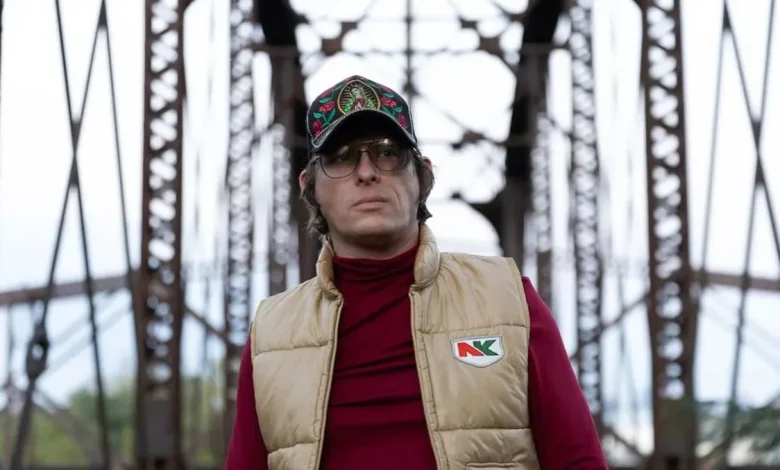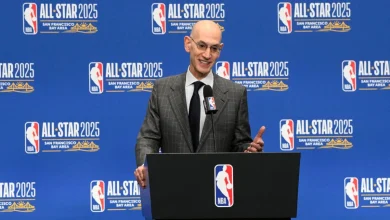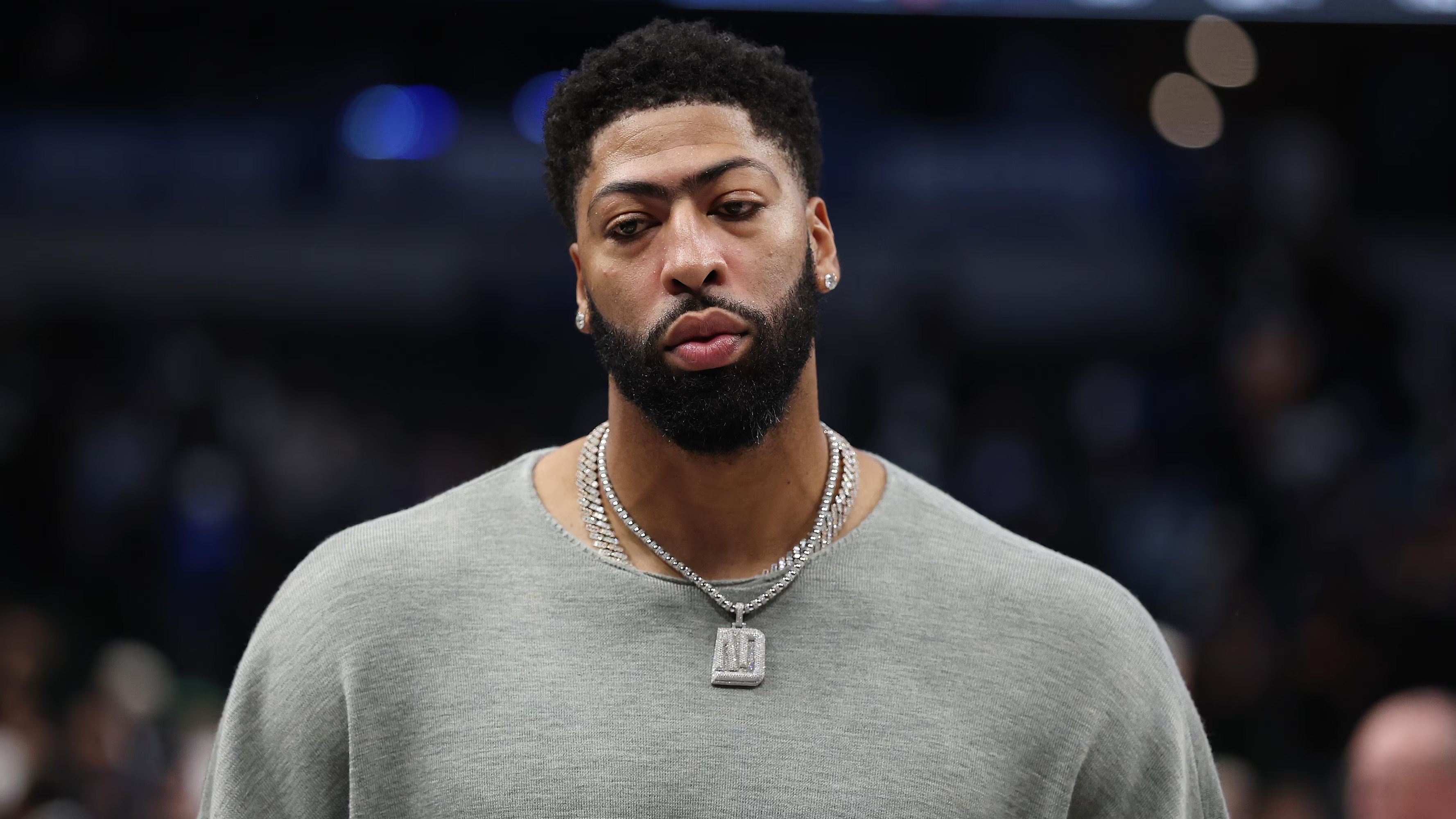Stephen Wilson Jr. is hunting a white buffalo. Folk & country music fans can’t get enough

America’s music: The inside story of the Delta Blues
As the USA nears its 250th anniversary, discover how the Mississippi Delta blues shaped modern music.
- Stephen Wilson Jr. is a singer-songwriter born and raised in Seymour. He’s known for blending country, folk and rock into a genre he coined “Death Cab for Country.”
- His rendition of Ben E. King’s “Stand By Me” at The Print Shop in Atlanta went viral, landing him the opportunity to sing the national anthem at the 2025 NFL Draft.
- Wilson Jr. sold out his show last December at Mercury Ballroom. His Nov. 15 show at the Louisville Palace is also sold out.
Ten years ago, Stephen Wilson Jr. could only imagine a day like this.
He’s sitting in a vaudeville-theatre-turned-concert-venue before a sold-out show, talking about the music that moves his soul and telling stories in a way that sounds like he’s writing lyrics mid-conversation.
The singer-songwriter, known for blending folk, country and rock and coined the style “Death Cab for Country,” went from selling out Mercury Ballroom (and every other U.S. stop on his “Søn of Dad Tour”) to making his Newport Folk Festival and Red Rocks debuts, and now selling out his Nov. 15 show at the Louisville Palace — all in 11 months.
He’s on a meteoric rise, thanks in part to a cover of Ben E. King’s “Stand By Me” that’s been viewed more than 5.7 million times on YouTube.
But a decade ago, his life looked very different, complete with a desk and a lab coat.
That version of Stephen Wilson Jr. was a food scientist for Mars Inc., manufacturer of foods like M&Ms and Skittles. That version stayed at a company he’d been with for three years, writing lyrics in a book he kept at his desk, until an executive pulled him aside one day in 2010.
“He said, ‘Hey, dude, I know you’re a grown man, and you make your own decisions in life, but, you know, I was your age once, and I just want to let you know you’re at a crossroads,'” Wilson Jr. told The Courier Journal. “They’re about to put the golden handcuffs on you. That’s the metaphor he used, a very effective usage of words. And me being a word nerd. I latched onto them…
“Meaning, you’re gonna make more money than you’ve ever made. It’s going to be money that’s going to be hard to refuse, but you’re going to be latched to this desk for the rest of your life and your dreams of going and being a songwriter are going to be over. Because you’re going to make this money and you’re going to buy a new house and you’re probably going to put your kid in private school and you’re going to get you and your wife a new car. And this dream, even conceivably, you’re gonna have to blow up your world so badly in order to go back and be a staff writer writing songs for nobody. You’re not going to do that. You’re not going to be willing to do it.”
Within six weeks, Wilson Jr. left the company to wait tables, bartend and write songs, to become today’s version of himself.
“It took me three years to get a publishing deal for $28,000 a year,” he said. “That was my starting salary.”
But there’s another version who may never have existed if he hadn’t been a junior, either.
‘I am my father’s søn’
Wilson’s father, Steve, is one of the biggest supporters of his career. The elder Wilson recognized a gift for music in his son and bought him his first guitar.
Anyone who knew him — which the majority of Seymour, Ind., where he hails from, does — would never have dreamed the poor son of a boxer would end up as a singer on stage.
“Never, ever,” Wilson Jr. said in his distinctive raspy, but nasally Southern Indiana drawl. “I’ll tell you that for sure. Me included.”
Wilson, Jr., was shotgun baby, born to a young father and mother who were forced to get married in a Pentecostal town. They divorced when he was about five, “babies raising babies,” he said.
While his dad raised him and his two siblings in Seymour, he spent a lot of time traveling up and down the Interstate 65 corridor between his mama’s in Smyrna, Tenn. or his mama’s family in Somerset.
“That whole corridor — it’s been the highway to this whole thing,” he said. “As far as somewhere that I’ve never lived and somewhere that I’ve never spent a lot of stationary time in, there’s nothing I’ve seen more than Kentucky.”
Wilson Jr., knows Kentucky, in some way, impacted who he is today, from his father, a Golden Glove fighter who idolized Muhammad Ali to Seymour’s proximity to Louisville.
“There’s probably a song in that somewhere,” he said.
The song that really launched his career, “Father’s søn,” is in there, too.
Yeah I tried to be differentTried to go against the grainDidn’t make no differenceI just ended up the same
I’ve never known better’Cause every bone’s tetheredYou wanna change my nameGotta drain my blood(expletive), I am my father’s søn
‘I cry my way through Kentucky every time I drive through it’
Wilson Jr. knew he wanted to be in Nashville for its songwriting culture, but realized he could get a science degree about 45-minutes away at Middle Tennessee State University and still be “song adjacent.”
So he drove another highway corridor between MTSU and Nashville in search of his soul. As he’s shared in numerous interviews and on stage during his Dec. 6 appearance at the Mercury Ballroom last year, his dad used to ask him to sing the words he wrote.
But Wilson Jr. said he told his dad at the time: “I don’t sing the words. I just write them.”
In 2016, he wrote, “For What It’s Worth,” which, though never released, was recorded by Tim McGraw. He also has songwriting credits on “Ain’t That Kind of Cowboy” for Trace Adkins, “Make It a Good One” for Brothers Osborne and “This Ol’ Rodeo” for Chayce Beckham.
Buy concert tickets on StubHub
“I wasn’t getting any singles and was still very much kind of a struggling songwriter, but some cool things were happening,” Wilson Jr. said. “I called them my God nods like, kind of like telling me I was on the right path of doing this.”
In September 2018, while returning home from a songwriting trip in Texas, his dad went in for emergency surgery. It went well and the father and son were texting.
But something soon went wrong, he told the crowd at last year’s Mercury show and to Holler, an online country music magazine:
“I was in the middle of packing clothes for a couple of nights’ stay when my sister called me in a massive panic. She said, ‘Dad’s dying, and I don’t know why. You have to get here as soon as possible.’ I flailed around and threw some clothes in a bag. I didn’t even know what I was doing, but I sprinted out of there as fast as I could. Needless to say, I didn’t make it in time. I got into the middle of Kentucky, and I said goodbye to my dad on an iPhone 8. It wasn’t fair; it wasn’t how it was supposed to go down, but that’s the way it was gonna go down.
“It was shocking how calm and cool he was about it. He wanted me to know that it was going to be okay. He’s dying and he’s like ‘Hey man, it’s going to be okay. Write a good song for me.’ He said ‘I love you’ four times, and then he died. My brother and my sister were there right beside him holding the phone. His voice was fading away, and by the fourth time he said ‘I love you,’ it was like he was in a tunnel or something. Even though I wasn’t physically there, I felt his soul depart. I felt my brain re-wire in an instant.”
He took the one-third share of his dad’s life insurance check to record a song, and eventually cut “Father’s søn,” releasing it in 2023. In the song’s music video, he sits on a chair in the middle of a boxing ring strumming a guitar, fading between video footage and newspaper clips of his father’s boxing career.
“I cry my way through Kentucky every time I drive through it,” he told The Courier Journal.
Enter “Grief is Only Love,” four words to encompass what Wilson Jr. felt after his father’s death.
And I miss my father every dayThe kinda pain I pray don’t fade awayAnd the ones above guide me down the road
Yeah, grief is only love that’s got no place to go
If it feels like a poem, it’s because Wilson Jr. has been inspired by them since he’d catch his mom writing them on junk mail. Usually, he’d dig them out of the trash after she’d scribble and throw away.
“I just remember she never had to tell me how she felt,” he said. “I could just tell by those poems.”
He started writing poems to mimic her, then started studying poets like Edgar Allan Poe.
“There was just no fat,” he said. “There were no words wasted. I was always compelled by that. I quickly concluded that the deadliest dart was the thing that said the most with the least. That’s kind of the white buffalo I’ve been hunting ever since.”
A drive down that familiar corridor
The songwriting game has changed from writing cool songs to writing cool songs for radio and now to songs for social media. None of that phases Wilson Jr.
“I try not to take music too seriously,” he said. “(People) want to hear something that really moves them to their core and existentially changes them. Music has that ability to do that. It has the ability to be like medicine to people, if you formulate it right.
“I think social media has been a great tool for artists like me. I don’t think I would have a career if it wasn’t around. Like if the system of the old guard of gatekeepers, I don’t think I would have ever made it through.”
Instead, he’s a quick repeat performer at the Railbird Music Festival, and will appear again 2026. He’s watched music transform people, so for him a bigger stage isn’t about stardom. It’s about the potential to see “love and healing exponentiated.”
But before then, he’ll take a drive down a familiar corridor.
“I can feel it in the air, my dad died in the middle of September, like the dawn of autumn,” he said. “It’s an important season.”
Wilson Jr. is most looking forward to seeing the sky back home ahead of his Nov. 15 performance in Louisville.
“The angle of the sky changes everywhere you go,” he said. “The way you see that angle is what is home.”
Stephanie Kuzydym is an enterprise and investigative sports reporter. Reach her at skuzydym@courier-journal.com or on social at @stephkuzy.





